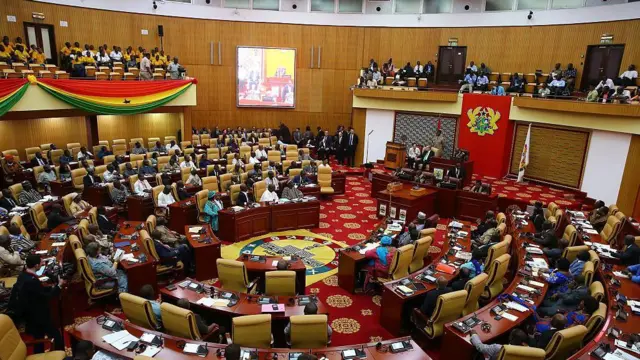The Public Procurement Authority Amendment Bill 2025, recently passed by Parliament, introduces a significant shift in Ghana’s public procurement landscape. The core of this amendment mandates written authorization from the Finance Minister, Dr. Cassiel Ato Forson, for all government-funded procurements. This new requirement is intended to inject greater fiscal discipline into government spending and to prevent the accumulation of arrears stemming from financial commitments that exceed approved budgetary allocations. Dr. Forson, speaking to Parliament, emphasized that this amendment is a crucial step in aligning procurement practices with responsible financial management. He stated that the amendment’s primary objective is to introduce a mandatory commitment authorization requirement, essentially a financial green light from the Ministry of Finance, for all government-funded procurement processes.
The amendment directly addresses a critical weakness in previous procurement practices – the awarding of contracts without adequate consideration for funding availability. This practice, Dr. Forson explained, has been a major contributor to the accumulation of arrears, placing a significant strain on the government’s finances. The government recognized the urgency of this issue and included the amendment as a key component of the 2025 Budget measures, signaling its commitment to fiscal responsibility and sustainable public procurement. The new mandate reflects a proactive approach to preventing further accumulation of arrears and promoting sound financial management within government operations.
The implications of this amendment are far-reaching. By requiring the Finance Minister’s written authorization, the government is establishing a crucial check-and-balance system within the procurement process. This ensures that all procurement activities are aligned with the approved budget and that adequate funds are available before contracts are awarded. This added layer of scrutiny is anticipated to curtail the incidence of unauthorized spending and prevent the government from incurring financial obligations it cannot meet. Moreover, by linking procurement decisions to available resources, the amendment promotes transparency and accountability in the utilization of public funds.
The amendment marks a significant departure from previous practices where procurement decisions might have been made without sufficient consideration of their budgetary impact. The absence of a centralized authorization mechanism created a potential for overspending and the accumulation of arrears. The new legislation effectively closes this loophole by requiring explicit financial approval from the highest level of financial authority within the government. This change underscores the government’s commitment to responsible fiscal management and its determination to address the systemic issues that have contributed to past financial difficulties.
This reform resonates with global best practices in public financial management, which emphasize the importance of budgetary control and fiscal discipline. By tethering procurement to available resources, the government is promoting greater efficiency and effectiveness in public spending. This approach ensures that public funds are utilized judiciously and that projects are undertaken only when they are financially viable. Furthermore, the enhanced accountability that the amendment brings is expected to bolster public trust in government procurement processes. By demonstrating a commitment to responsible financial management, the government aims to build confidence in its ability to manage public resources effectively.
In essence, the Public Procurement Authority Amendment Bill 2025 represents a significant step forward in strengthening Ghana’s public financial management system. By requiring the Finance Minister’s authorization for all government-funded procurements, the government is establishing a robust mechanism for budgetary control, enhancing accountability, and promoting more responsible and sustainable public procurement practices. This reform is expected to contribute significantly to the government’s efforts to manage public finances more effectively, prevent the accumulation of arrears, and ultimately, ensure that public funds are utilized in a manner that serves the best interests of the citizens of Ghana. The focus on fiscal discipline and responsible spending embedded within the amendment strengthens the foundation for long-term economic stability and sustainable development.














